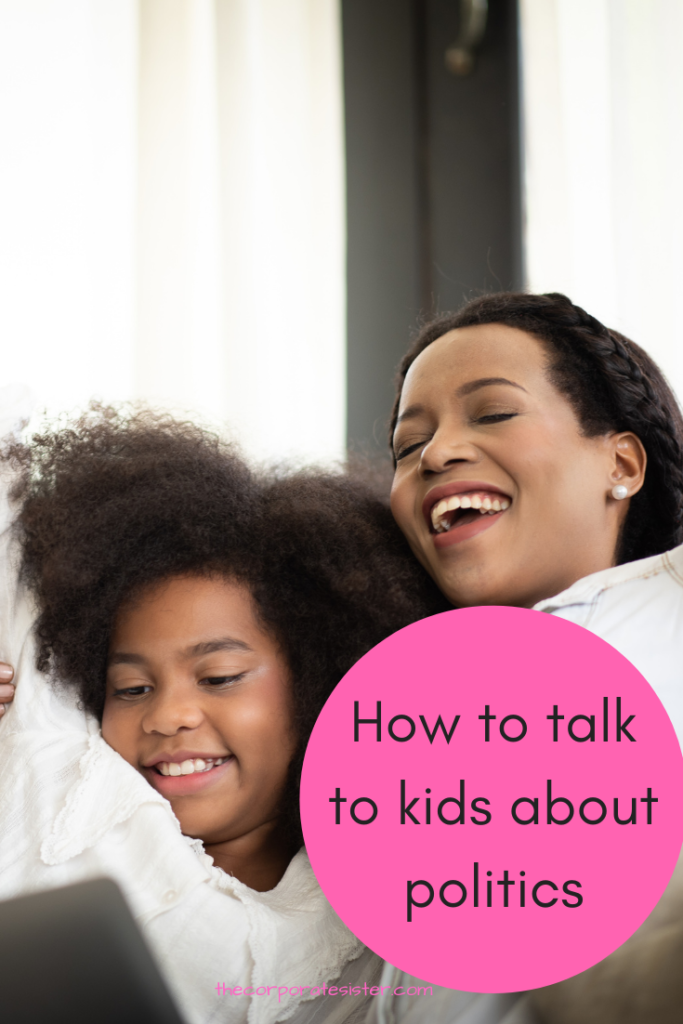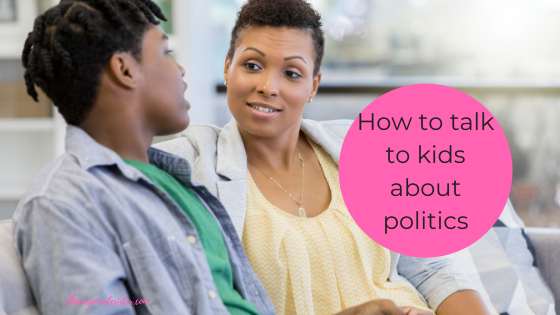“Mommy, who won the elections?”
This question, coming from the mouth of young children, can be jarring for many, if not most parents, especially in a tense and heated election season like the one we’re currently in. How do you talk about politics with kids? Should you even talk about it, and invade their still innocent minds with details of political tactics and self-interest? As parents, shouldn’t we instead shield them from all the political talk? It seems most parents would agree with the latter… According to a 2016 survey by Care.com, 90% of parents revealed they don’t discuss politics with their kids because they are too young to understand.
The reality is, children have a sense of understanding as young as the age of 3 years old, as confirmed by Purdue University Professor Emeritus of Child Development Dr. Judith Myers-Wall. By the time they reach pre-schooling age, children sense the existence of a political world. At this point, because they are already aware of a fundamental need for justice, some conversations cam begin to take place. While each kid differs in what they know and learn, mostly from interactions with and exposure from adults, most kids can be involved in healthy political discussions that they can understand and wrap their minds around.

As a protective mama bear, my first inkling was to shield my kids from politics. However, as I watch them grow, and be more inquisitive and passionate about justice, it’s become evident how important it is to teach them to think for themselves about politics. Here are a few ground rules, backed by expert advice on how I’m starting and continuing to talk about politics with my kids, and how I encourage you to do so as well:
- Start with questions
Kids may hear a lot about elections from other kids and adults around. They may also have unanswered questions and thoughts about the process and its implications. This is why it’s so important to lead with questions, if only to better understand what they know and what they are curious about.
Asking them questions about this may also give them permission to talk about a subject they may have considered taboo.
- Focus on offices, NOT people
Politics are most effective when we focus on the office and the good work that can be done through it. Instead of dwelling on personal differences with people and actors on the political scene, switch the conversation to the importance of political offices and how these can help make a positive difference in people’s lives.
Additionally, instead of talking about “good or bad” people, choose to discuss instead good and not-so-good ideas. This reinforces the idea that disagreements and differences of opinions can be constructive, without alienating people in the process.
- Don’t shove your views down their throats
As parents, while we may want to teach our kids our own sets of values, we must also allow them to be their own people. While most children tend to adopt their parents’ views, offering kids a stable environment that is not biased towards one view as opposed to another can go a long way.
- Teach them not to believe all that they hear
As we all know, politics can be treacherous terrains to tread on, filled with fear-mongering, manipulation and deception. This is also the reason why so many parents steer clear of the “political talk” with their children.
However, not preparing kids to deal with the treacherous nature of politics is doing them a disservice. Instead, introduce them to its biased nature, point out important issues and teach them not to take everything they hear or see at face value.
- Teach them respectful free speech
While it’s crucial to emphasize and support free speech, it’s even more important to teach kids to make use of it in a respectful and decent manner. This is especially relevant in light of the disrespectful tone that has been smearing the political scene recently.
Emphasizing the need to respect other people’s opinion is instrumental in this, and providing good examples of political figures using positive and encouraging speech.
- Prepare them to deal with challenging situations
Tough conversations around politics are going to happen, and preparing children to face these is paramount. Empowering kids to handle differences of opinions in a loving and inquisitive manner can go a long way. Teaching them that they can also walk away from unsafe situations when it comes to political conversations is also paramount.
All in all, talking to kids about politics can be a scary prospect as a parent. However, it’s a process that is not only necessary, but empowering for children and families.
How are you talking to kids about politics in this season?
The Corporate Sis.







